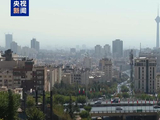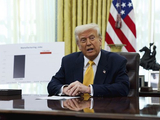China's Global Strategy; U.S. Military Moves; Domestic Policy Shifts; Historical Narratives; Regional Tensions
Diverse Narratives on China's Foreign Policy and Trade Dynamics
Recent events show a concerted effort by China to strengthen its diplomatic presence and manage Chinese nationals working in foreign diplomatic missions. According to an article from the Foreign Ministry of China, a new regulation titled “Regulations on the Management of Chinese Employees in Foreign Diplomatic Missions” will take effect in 2026. This regulation aims to enhance the legal and standardized management of Chinese employees in these missions, emphasizing the importance of upholding China's legal rights while maintaining diplomatic decorum.
In contrast, an article on Tencent News discusses the ongoing trade negotiations between China and the United States, highlighting the complexities and high stakes involved. The narrative suggests that the U.S. is struggling to maintain its position as the sole superpower in light of China's resilient stance. The article criticizes the U.S. for attempting to pressure China into submission, portraying China as a 'hard nut to crack' and emphasizing the potential consequences of underestimating China's resolve.
Meanwhile, CCTV reports on China's domestic economic strategies, particularly in Xinjiang, where significant investments in infrastructure and trade have transformed the region into a hub for the Belt and Road Initiative. The article underscores the exponential growth in trade volume and improved logistics, demonstrating China's strategic focus on regional development as a means to integrate further into the global economy.
These developments indicate varying focuses across different publications. The Foreign Ministry's regulation highlights China's internal efforts to streamline its diplomatic operations and protect its nationals, reflecting an emphasis on governance and legal frameworks. Tencent's narrative, on the other hand, is more confrontational, portraying the U.S.-China trade talks as a geopolitical chess game with significant global implications. CCTV's coverage of Xinjiang's development showcases China's narrative of economic progress and integration, aligning with its long-term strategic objectives.
It appears that each publication, through its unique lens, conveys China's multifaceted approach to foreign policy and economic growth, illustrating the complexities of its international and domestic strategies.
China's Diplomatic Engagements: A Focus on Bilateral Relations and Regional Cooperation
Recent events show China's active diplomatic efforts in strengthening bilateral relations with Poland and addressing regional issues. The first article from the Foreign Ministry of China highlights the fourth plenary meeting of the China-Poland Governmental Cooperation Committee held in Warsaw. Both nations emphasized deepening their comprehensive strategic partnership within the existing framework, aiming to bolster bilateral cooperation and expand exchanges across various levels. The meeting underscored the significance of the 75th anniversary of China-Poland diplomatic relations and the 50th anniversary of China-EU relations, providing a platform to address mutual political and economic challenges.
These developments indicate a commitment to supporting international law and multilateral cooperation platforms, such as the United Nations and WTO, as reiterated in the meeting. The article also mentions the intention to enhance connectivity and logistics between Europe and Asia, focusing on rail, maritime, and air transport.
In contrast, the second article reports on the visit of Yue Xiaoyong, China's Special Envoy for Afghan Affairs, to Uzbekistan and Tajikistan. This visit aimed to engage in discussions on Afghan-related issues, reflecting China's strategic interest in regional stability and cooperation within the Shanghai Cooperation Organization framework.
The news highlights China's dual approach in diplomacy: fostering bilateral relations with European nations like Poland, while simultaneously addressing regional security concerns in Central Asia. While the first article provides a detailed account of the bilateral meeting's outcomes, the second article briefly mentions the envoy's visit, focusing more on regional security dialogues.
It appears that China's diplomatic narrative aims to project an image of a proactive and cooperative international partner, working through both bilateral and multilateral channels to address global and regional challenges. This strategic engagement aligns with China's broader foreign policy goals of enhancing global influence and ensuring regional stability.
Unexpected U.S. Military Presence at Belarus-Russia Joint Exercises: A Diplomatic Signal?
Recent reports from Sina and United Daily News highlight the surprising appearance of U.S. military officials at the "Zapad-2025" joint military exercises held by Belarus and Russia. The exercises commenced on September 12 amidst heightened tensions between Russia and NATO. The presence of American officers was acknowledged by Belarusian Defense Minister Viktor Khrenin, who noted that they could freely observe and interact with personnel, a gesture that could be interpreted as an unexpected openness given the current geopolitical climate.
Sina emphasizes the broader context of recent U.S.-Belarus interactions, noting a potential warming in relations. This is seen through recent diplomatic engagements, including discussions between U.S. Special Envoy John Coale and Belarusian President Alexander Lukashenko, where issues like sanctions and bilateral relations were on the table. Notably, the U.S. has lifted certain sanctions on Belarus' aviation sector, signaling a thaw in diplomatic relations.
United Daily News, on the other hand, frames the U.S. military presence as a strategic surprise, pointing out the significance of American engagement at a time when tensions with NATO are peaking. The article highlights the symbolic nature of this presence, suggesting it could be a move towards normalizing relations or a strategic maneuver amidst ongoing conflicts, such as the situation in Ukraine.
Both publications agree on the unexpected nature of the U.S. officials' participation and the potential diplomatic implications. However, Sina offers a more optimistic view of improving U.S.-Belarus relations, while United Daily News underscores the strategic surprise and potential implications for NATO. This divergence in narrative might reflect differing editorial perspectives or geopolitical intentions, with Sina possibly aiming to highlight diplomatic progress and United Daily News focusing on the strategic chess game between global powers.
Controversy Over Pre-Cooked Meals in China: Standards and Reactions
Recent events show a significant development in China's food industry as new national standards for pre-cooked meals have passed review and are open for public comment. Yicai Global reports that these standards will enforce information disclosure regarding the use of pre-made dishes in restaurants, aiming to define product specifications and enforce food safety requirements. This move follows a controversy ignited by influencer Luo Yonghao, who criticized the widespread use of pre-cooked meals in Xibei, a popular restaurant chain in northeastern China. The backlash from his comments led to a sharp revenue decline for Xibei, highlighting a public demand for transparency in food preparation.
Meanwhile, Sina highlights that the Beijing Municipal Market Supervision Bureau is investigating the situation, underscoring the growing official attention towards the controversy. The Sina report emphasizes the corporate structure and ownership of Xibei, providing context to the unfolding events. Despite the differences in focus, both sources indicate a shift towards regulatory enforcement in the food industry, with the potential for increased operational costs and market consolidation as smaller factories may struggle to meet the new requirements.
Reflecting on China's Role in the Anti-Fascist War: Narratives and Intentions
Recent events show a concerted effort by Chinese media to underscore the significance of China's contribution to the global fight against fascism during World War II. In an article from Qiushi Journal, the narrative focuses on commemorating China's role as a pivotal battleground in the anti-fascist war. The piece highlights the immense sacrifices and strategic victories achieved by China, portraying it as a central player that significantly hindered Japanese expansionism. This perspective is reinforced by detailed recounting of military campaigns and the strategic stalemate achieved against Japanese forces.
These developments indicate a cohesive attempt to bolster national pride and historical consciousness. In contrast, CCTV's coverage of the 80th anniversary of the victory over fascism places emphasis on the modern implications of this historical remembrance. It appears that CCTV aims to inspire contemporary national unity and progress by drawing parallels between past resilience and current ambitions for national rejuvenation. The news highlights President Xi Jinping's call for national cohesion and the continuation of the 'great struggle' spirit in advancing China’s modernization efforts.
The contrasting narratives from Qiushi Journal and CCTV illustrate different layers of storytelling: Qiushi Journal offers a detailed historical analysis, while CCTV focuses on the motivational aspects tied to current political goals. Both serve the possible intention of reinforcing national identity and China's pivotal historical role on the world stage, yet they cater to different aspects of the collective memory and future aspirations.
Tensions Rise as Washington D.C. Halts Cooperation with ICE
Recent developments in Washington D.C. have captured significant attention as Mayor Muriel Bowser announced the cessation of cooperation between the city's police and the U.S. Immigration and Customs Enforcement (ICE). Liberty Times reports that this decision has led President Trump to declare a state of emergency, asserting federal control over the district. The news highlights the ongoing debate over local versus federal authority in immigration enforcement.
In a parallel report, United Daily News reiterates these events, focusing on the tensions between federal directives and local governance. Both articles emphasize the controversy surrounding the sharing of information regarding undocumented immigrants, with criticisms from civil rights groups and local officials about potential federal overreach.
The Liberty Times suggests that the move by Mayor Bowser is a response to pressure from progressive Democratic factions, while United Daily News highlights President Trump's criticism of such pressures, warning that crime rates might surge if cooperation with ICE ends. These differing narratives reflect the broader political divide over immigration policies and law enforcement cooperation in the U.S.
Iran's Call for Regional Unity Against Israeli Actions
Recent events highlight Iran's President Ebrahim Raisi's call for regional countries to unite against Israel's actions, as reported by multiple sources. During his visit to Qatar for the Arab-Islamic Emergency Summit, Raisi criticized Israel for disregarding international law and committing aggression against several regional countries including Qatar, Lebanon, Iraq, Iran, and Yemen. He urged regional nations to sever ties with Israel, emphasizing that such unity would deter Israeli encroachments and violations of international law. This narrative was prominently featured in both CCTV and Sina, with both outlets emphasizing the alleged support of the United States and European countries for these Israeli actions.
The reports from CCTV and Sina are notably similar, both underscoring Raisi's accusations of Israel conducting ethnic cleansing in Gaza, including harm to women, children, and the elderly. They also point out the U.S.'s role in legalizing these actions by providing support to Israel. The intention behind these narratives appears to be to rally regional support against Israel while criticizing the involvement of Western powers. The consistency in coverage across both platforms suggests a coordinated effort to broadcast Iran's stance on the issue.



